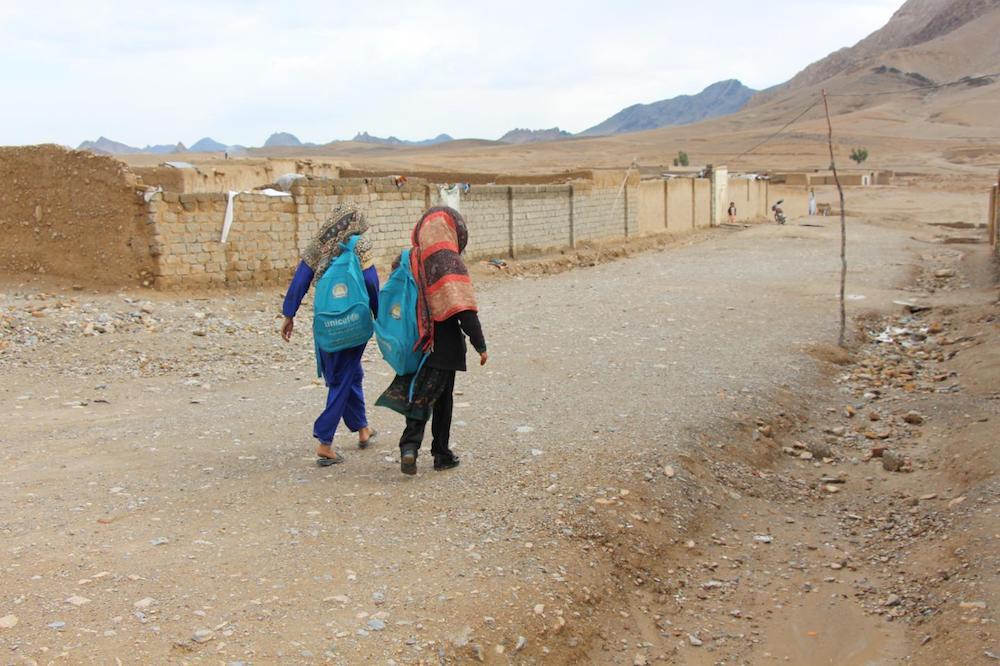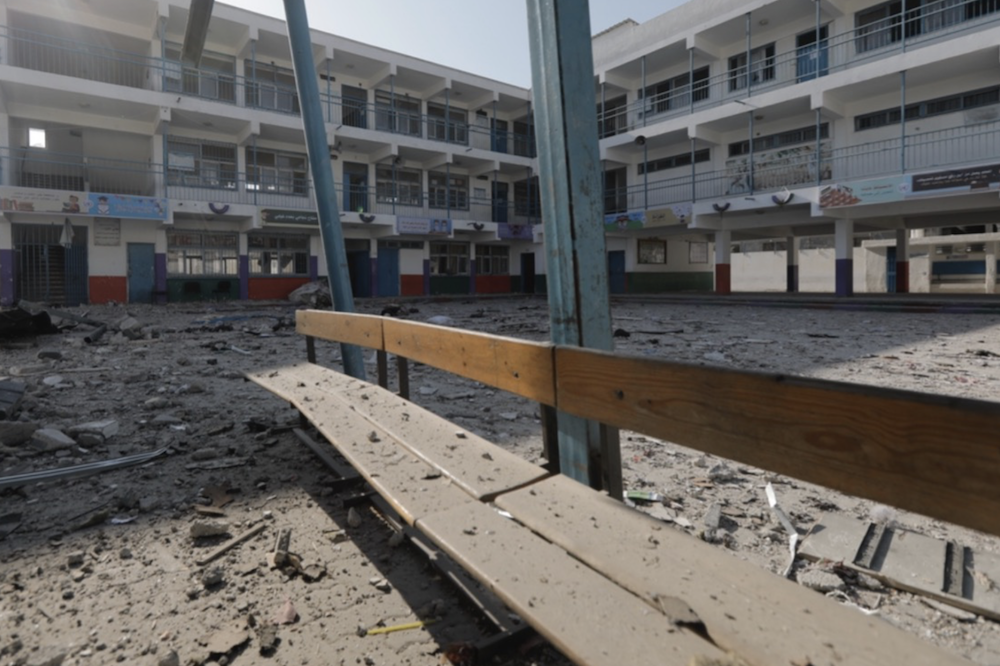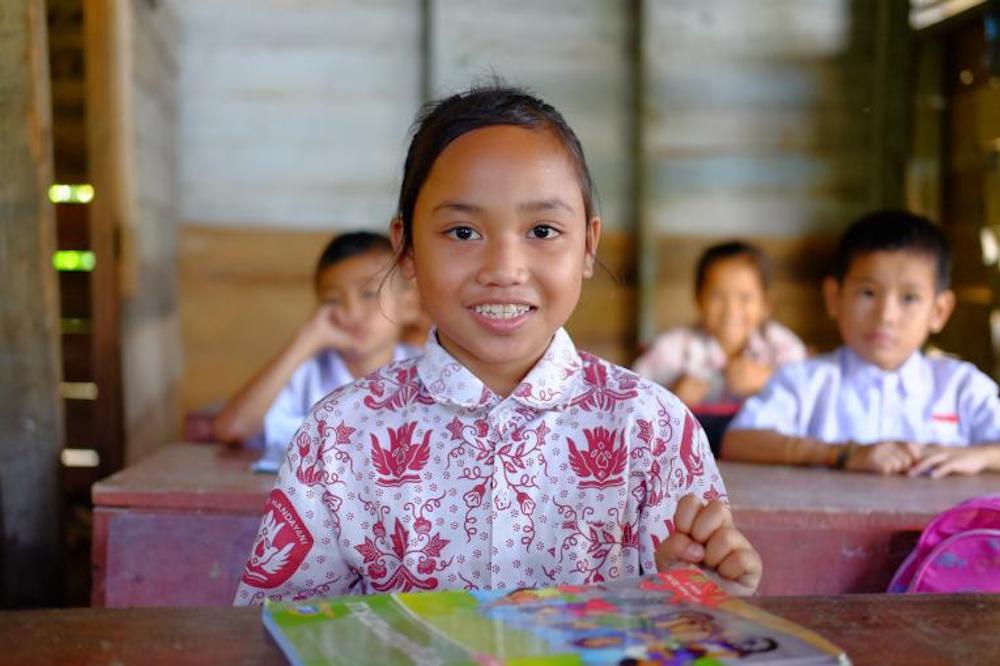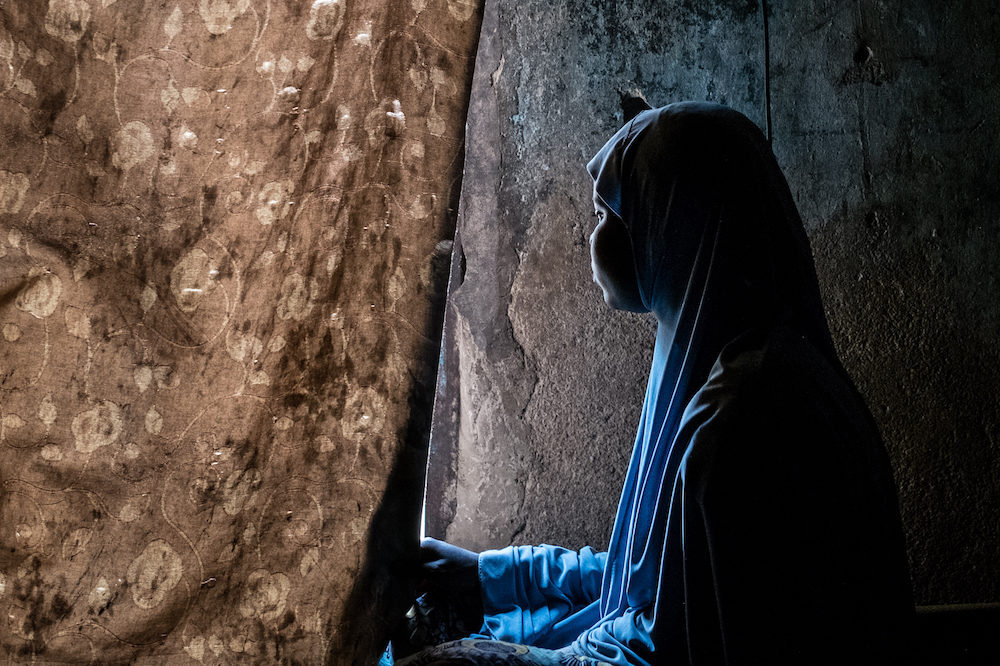
Five things you need to know this week about global education

Children in conflicts, Refugees and internally displaced people
Gordon Brown calls for $8 billion of aid in return for girls' education to be protected in Afghanistan - plus it's back to school for several countries.
Brown calls for $8bn aid to protect girls' education in Afghanistan
Gordon Brown, the United Nations Special Envoy for Global Education, has called for the G7 to offer $8 billion aid in return for the Taliban guaranteeing the rights of girls to go to school in Afghanistan.
He said the “bold offer” of funding would match the amount given for girls’ education over the past 20 years.
Brown said the aid could be overseen by UNICEF and an expert team appointed to ensure any agreements with Taliban leaders are kept.
The former British Prime Minister told the Mirror newspaper: “The money should come on one condition – that the rights of girls to education are upheld. But we must be absolutely clear with the Taliban, nationally and locally, that aid will be withdrawn if girls’ rights are not upheld.”
He said the Taliban takeover in Afghanistan “puts in jeopardy” the dramatic increase since 2001 in the number of children and youth going to school from one million to 9.5 million.
Brown added: “At the peak, 65% of young girls were attending first grade and 3.6 million girls were benefiting from primary or secondary education. Many who are among the 90,000 girls now in further education are training to be doctors, scientists and lawyers.”
He called for a monitoring team to track progress on girls’ and women’s rights to be headed by Liz Grant, an assistant principal of global health and director of the global health academy at the University of Edinburgh.
Palestinian refugee children go back to school

89 UNRWA schools were impacted by a summer of hostilities (UNRWA)
After more than a year of disrupted learning, more than 290,000 Palestinian refugee children – including 31,000 newly-registered students – went to school in Gaza this week.
The UN agency UNRWA reopened its 278 schools in Gaza after a summer of hostilities that left 66 children dead.
Of those, 89 schools were damaged but UNRWA managed to quickly repair all but two in time for the new academic year.
UNRWA operates 710 elementary and preparatory schools for more than 539,000 Palestinian refugee students in Gaza, the West Bank, Syria, Lebanon and Jordan.
Indonesian schools reopen cautiously

Children are returning to school in Jakarta as Covid-19 restrictions are eased (UNICEF )
Indonesia’s capital Jakarta reopened 600 of its 10,000 schools this week as Covid-19 restrictions eased. But a teachers’ federation urged caution and warned of clusters in classrooms caused by the Delta variant.
Governor Anies Baswedan said schools deemed safe had opened at 50% capacity in a resumption of a trial that started in April. He said vaccinations are not mandatory for in-school learning, adding that 91% of children aged 12 to 18 and 85% of teachers have been fully inoculated.
Six-year-old Zhafira Tsamara Ufaira Azza was excited to be back at school, where students will rotate with one day per week in class and the rest online at home. She said: “I got to meet my friends and teachers.”
In Saudi Arabia, six million students returned to classes for the first time since the start of the pandemic. Children above 12 have to show they have been vaccinated before they can go back. In Israel, students also returned with mask and mandatory testing requirements.
Joy as kidnapped Nigerian students are freed

Hundreds of students have been abducted from schools in Nigeria throughout 2021 (UN Photo)
Ninety children abducted from a school in Nigeria were reunited with their parents after being held captive for nearly three months.
“Today is the happiest and most joyful day for me and my family,” said Ali Gimi, whose five children were among those kidnapped from an Islamic school in Niger state in May. one child, Ahmed Mohamed, said: “We suffered terribly. They tied us up from morning till evening.”
Authorities say 136 children were initially seized but some later escaped. A boy aged five or six died in captivity. The kidnappers initially said six had died but this proved to be a lie to scare parents into paying a ransom.
In a separate incident in Zamfara state, armed men kidnapped 73 children from the Government Day Secondary School in the village of Kaya. Mass kidnappings of schoolchildren have become a money-spinning industry for armed gangs in northwestern Nigeria – with 1,000 children abducted since December.
Jordan bids to prevent school violence
In partnership with @edugovjo, UNICEF launched the ‘Diagnostic Study of National Efforts to Prevent & Respond to Violence in Schools in Jordan’. The study provides recommendations to protect children from violence and its long-lasting effects.
Read more: https://t.co/Ix3Ap5GdON— UNICEF Jordan – يونيسف الأردن (@UNICEFJordan) August 26, 2021
Jordan’s education ministry and UNICEF have launched a study to prevent and respond to violence in schools.
It is part of Safe to Learn, a global initiative to end violence against children in, around and through schools. Jordan is the latest of 15 countries to endorse Safe to Learn’s Call to Action.
The new study will make recommendations to protect children from violence and its long-lasting effects. School violence and bullying, both in person and online, can be devastating for children and can make them unable to concentrate in class, play truant or even drop out of school.
Tanya Chapuisat, UNICEF Representative in Jordan, said ending violence in and around schools can lead to behavioural changes and better learning outcomes. She added: “But most importantly, it will help the Government of Jordan to reap the long-term benefits of education and secure future economic growth.”
More news

